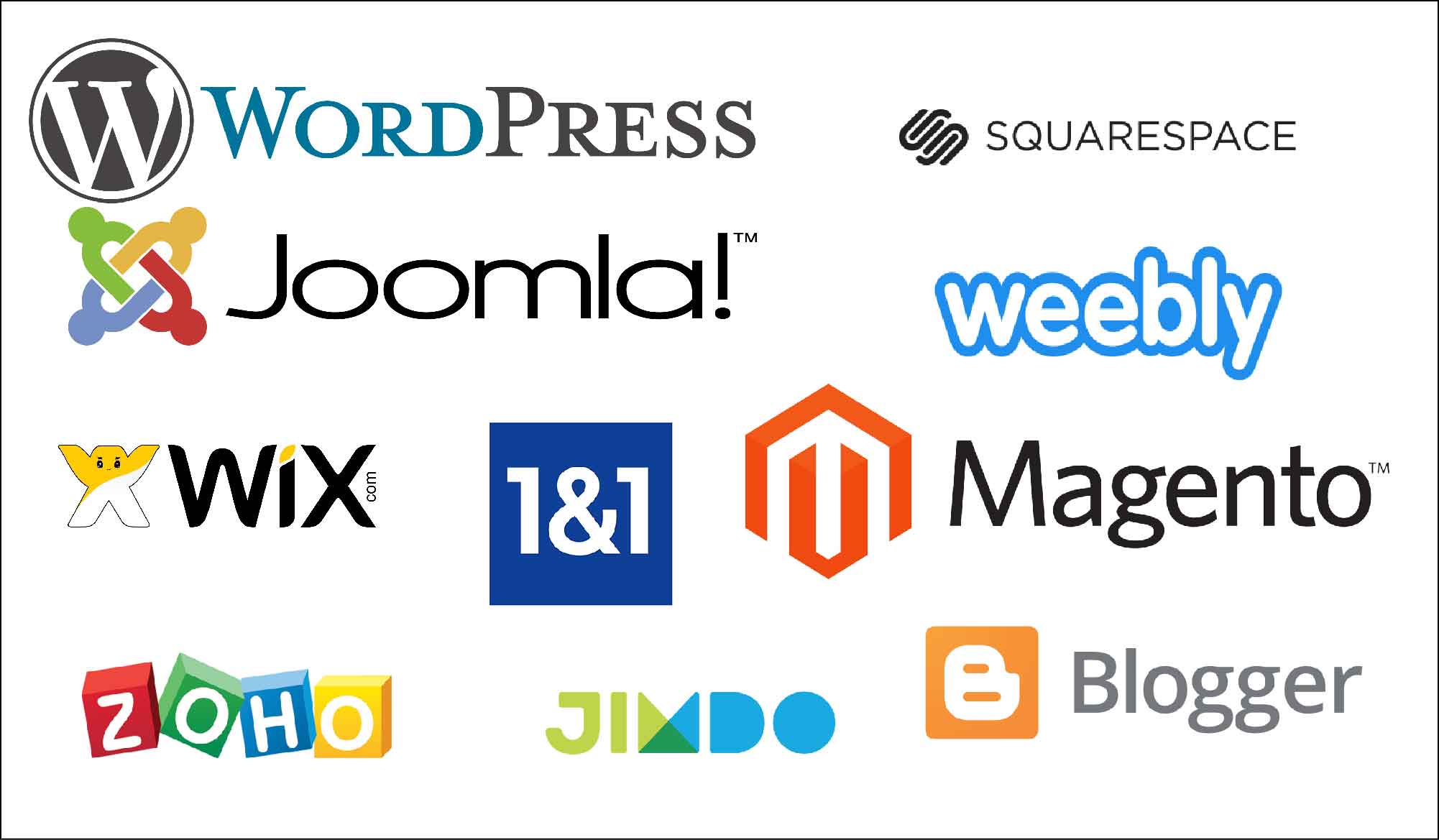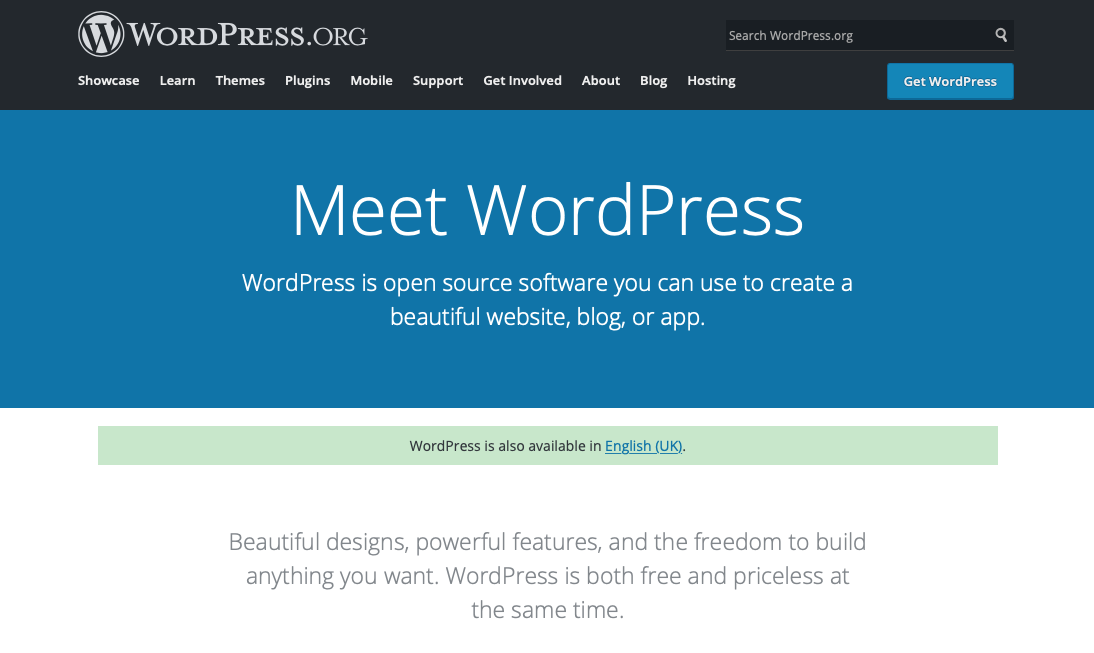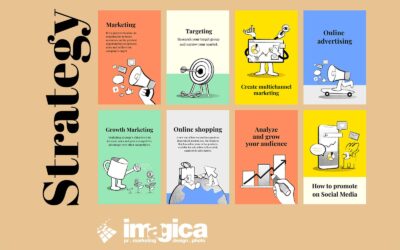I’ve been building websites for almost 30 years dating back to the days where you coded them by hand using a simple TEXT EDITOR. This was the early days of HTML and there were not many short cuts. Now you have lots and lots of options for your new or upgraded website including WordPress, Joomla, Drupal, Shopify, Squarespace, Magento, Wix, Weebly, and even GoDaddy has their own proprietary platform. All are used to build websites. Each has its own unique set of benefits. The right choice for your company depends on your end game. Most of these don’t require advanced coding knowledge as “builders” are included and some basic starter templates to get you going are included.

If you choose, you don’t even need a web expert any more if you have lots of time and little money. There will be a learning curve for sure. I like to explain it like this:
Even though I can cook quite well, if Gorden Ramsey came into my kitchen he could make a far better meal (appearance and taste) in much less time than I could using the same tools and ingredients at my disposal. Period.
I’ve authored and maintained sites on all the platform listed above but my favorite hands down is WordPress. I’m pretty much designing and building exclusively on this platform right now. Here are some convincing reasons why:
1. WordPress is Free and Open Source
What that means is WordPress is non-proprietary. It is constantly being improved by literally thousands of the best software minds around the world who believe equally that it is the future, at least for now. It is self-hosted so you will need a hosting provider. Often web developers “code” your website with custom features and code that only they can efficiently (read: economically) support making you more or less beholden to them in your relationship. This is also the case with most of the aforementioned platforms. If you build your site on WIX for example and you are finding it restrictive and more costly every year, you can’t simply migrate your site to another hosting or platform. You have to start from scratch.
2. Adaptable to Support Any Function
A common misconception is that it is just for “bloggers” or individuals which is untrue. It’s great for small business and with the functionality of “plug-ins” you can add all sorts of functionality without having to do the heavy lifting of developing the code yourself to perform even the most advanced business functions like scheduling, chats, reviews, sales funnels and so on.
3. Easy to Learn and Massive Support
Although advanced design, modification and coding can be somewhat complicated, WordPress is a CMS based platform or Content Management System. You or your staff can easily create content, make edits, add photos etc all from a browser. No software required. Because it’s so widely used, you can “Google” almost any question or issue you have and quickly find an answer. WordPress is updated often which means it’s constantly improving and adapting to the rapidly changing world.
4. WordPress is SEO Friendly
WordPress is known for having SEO built into the platform. In fact, WordPress automatically generates title tags and meta descriptions for all of your pages and posts. This lets search engines know about your content, and it will get you indexed and potentially moved up in the rankings.
5. YOU Have Complete Control – Take it With You
Common custom websites from developers and non-open source platforms like Squarespace, Shopify, WIX etc. limit your control to whatever features are offered in the premium packages.
That leaves you with some limitations like the following:
- The e-commerce functionality is usually built-in, so there’s not much you can do about expanding with plugins.
- You’re typically stuck with whatever hosting is provided. You don’t have the freedom to test hosts and go with the best value or highest performing.
- Adjusting code is limited to what the companies share with you. Even worse, you get stuck with a completely unique coding language, like with Shopify (It uses a language called Liquid). In short, it almost guarantees that you have to hire a specialized developer for changes you can’t handle yourself through the editor.
- You don’t technically have full ownership of your site and content. You’re renting the website from these companies. So when you stop paying, all of those files and pages are either lost or held by the company. With WordPress, you own the files, and no one can prevent you from moving them to other hosts or simply transferring the site to another person or developer to help you manage the your site.
I like to tell clients I’m building you the site on WordPress so if anything happens to me, anybody can take it over with no training, notes or special instruction whatsoever.
6. WordPress is Proven and Popular
Just because something is popular isn’t necessarily the best reason to jump on board, but when companies with far greater resources than yours are comfortable with this platform it shows that the performance is SOLID. In fact as today, WordPress is used by 40% of all websites. You probably didn’t know that websites like Facebook, Sony, Disney, Target, The New York Times, Time Magazine and more use WordPress to power their websites. Yup, they use a FREE, NON-PROPRIETARY PLATFORM. Again, remember even though the platform is open source and free you will need a domain, hosting and create the message you want to convey in a compelling manner.

7. Responsive
WordPress adapts to multiple platforms, displays and devices. This is what we refer to as responsive design. A must in today’s world for any business. There is no need to have a separate mobile site.
8. Change it Up
WordPress uses what’s called a MYSQL Database to store your content. Kind of like keeping all your words, images and design notes in an Excel Database Document. You can easily change the “Wrapper” in which your content is displayed for a whole new look and feel without having to upload or re-enter your previous content again. That is simply not possible with HTML or many other platforms.
9. Massive Resources
This is one of my favorite reasons so I’ve saved it for last. Because this platform is so widely used, you have a vast library of resources or “plugins” to extend the functionality of your website. I use Weglot as a good example.
About 8 years ago I paid somebody over $10K to translate a rather large site into German, French and Italian. Now I can download a plugin FOR FREE to do the same or pay a modest $12/month for a premium version that allows advanced formatting and functionality. In fact, I haven’t needed to hire a custom developer for ANY function for years on WordPress. This is simply not the case on other platforms. Options include almost anything you can imagine including scheduling, reviews, chats, security, site speed, backups, SEO and the list goes on and on.
I believe WordPress will be the clear winner when the battle of the platforms is over due to its growing army of dedicated and highly trained soldiers who continue to improve and support the platform.




